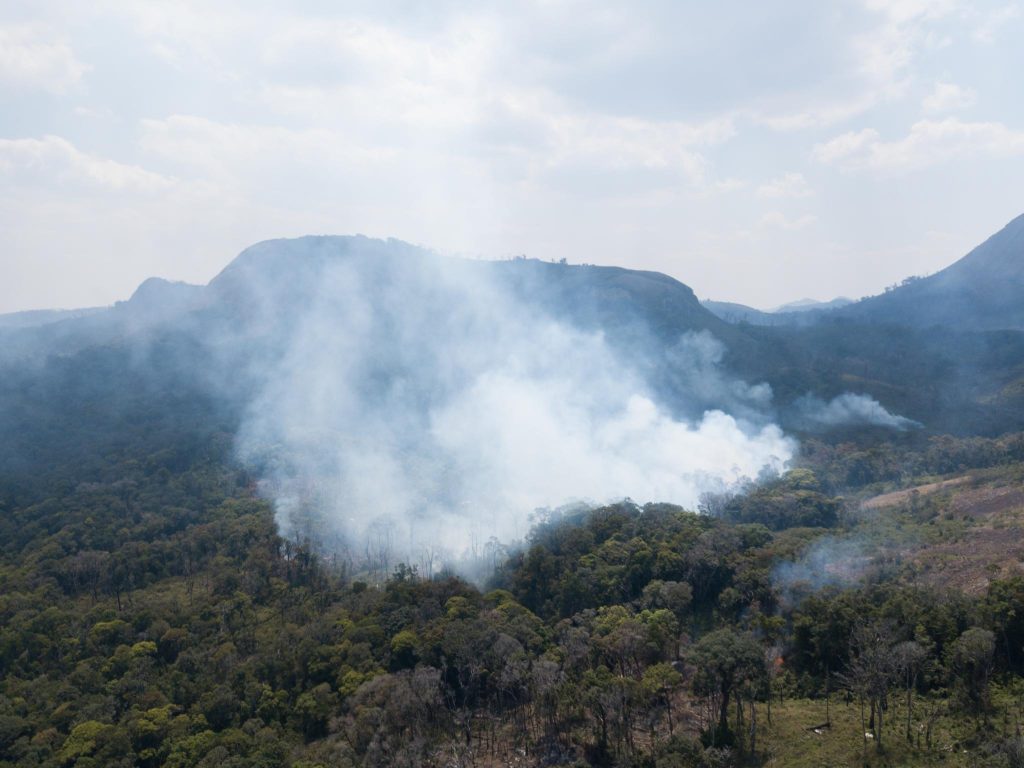Don’t wait for the smoke to clear: Take action to stop rainforest burning now
The world’s tropical rainforest is burning. From the Congo Basin to the Amazon itself, satellite images and reports from the ground are showing an increased number and severity of forest fires.
Brazil’s Amazon rainforest has seen a record number of fires this year. This burning caused a thick layer of smoke to descend across Sao Paulo more than 1,700 miles away.
Now, although the smoke may have cleared and media attention has passed, forest fires and deforestation will continue out of sight and mind if we fail to take global action now.
INPE, the Brazilian Space Agency, detected more than 72,000 forest fires between January and August in 2019, the highest number since records began in 2013.


More than 9,500 rainforest fires were observed burning in one week since 15 August alone, mostly in the Amazon region. In comparison, there were fewer than 40,000 in the whole of 2018.
Areas of Brazil saw an 88% increase in deforestation in June 2019 compared to the same month in 2018. That’s areas of Amazon rainforest roughly the size of a football pitch now being cleared every single minute.
Forest fires are a global issue
When we think of rainforest and deforestation, it’s the Amazon that most often springs to mind. But rainforest right round the tropics needs our attention.
In particular, the world’s second-largest rainforest that covers an area four times the size of California is the only place to harbour all three subspecies of gorilla and supports some 150 different ethnic groups. It’s the rainforest of the Congo Basin, and is being deforested due to a demand for fuelwood, charcoal and clearing space for encroaching palm plantations. In one 48-hour period from 21 August, there were 6,902 fires in Angola and 3,395 fires in the neighbouring Democratic Republic of Congo, compared with 2,127 fires in Brazil.
The underlying causes of forest destruction are largely driven by financial poverty. This makes it essential that our approach to forest conservation is global; sharing best methods for tackling slash and burn and deforestation between communities right around the Tropics.
Fires like this aren’t natural in tropical rainforests
Naturally, rainforest is characterised by water. Lots of it. Their permanently wet and humid state make them normally resistant to fast-spreading fires.
But even the most water sodden rainforest is no match for the systematic and unrelenting clearing that is taking place in Brazil today. Coupled with severe drought, 50% less rainfall and high temperatures, rainforest fires will begin to rapidly spread if action isn’t taken.
“I want you to act as you would in a crisis.
I want you to act as if our house is on fire. Because it is.”
Greta Thunberg, 2019.
Homes for wildlife, water releasers and oxygen producers, nature has already designed a perfect climate-change-tackling-machine, but they’re being burned in their thousands. Over the past several decades, as the world has increasingly warmed, so has its potential to burn.
Rainforest and Climate Action
Rainforest is undeniably our greatest safety net against catastrophic climate change.
Areas of primary tropical rainforest, like the Amazon, can be thousands of years old and are crucial and irreplaceable stores of carbon. Once these forests are cut down or burnt, they may never return to their original state. Even after 40 years of recovery, secondary regrowth forests remain species and carbon-poor compared to undisturbed primary forests.
We must take action to keep trees standing. From the income of the smallest indigenous community in the Amazon to the global climate, every aspect of our daily lives relies on tropical rainforest.
In the face of increasing policies to burn, farm and log as much forest as possible, we have to place our support behind those who call this forest home. They have the most to lose out of any of us, yet their intrinsic knowledge of their forest is crucial in the development of programmes to reduce deforestation.
This problem isn’t going to go away. With your regular support, Cool Earth can work to take climate action, share local knowledge and develop the best ways to protect rainforest globally.
Further reading:
Bloomberg, 2019
Vice, 2019
The Guardian, 2019
NASA/Goddard Space Flight Center, 2019, Science Daily
World Resources Institute, 2019
